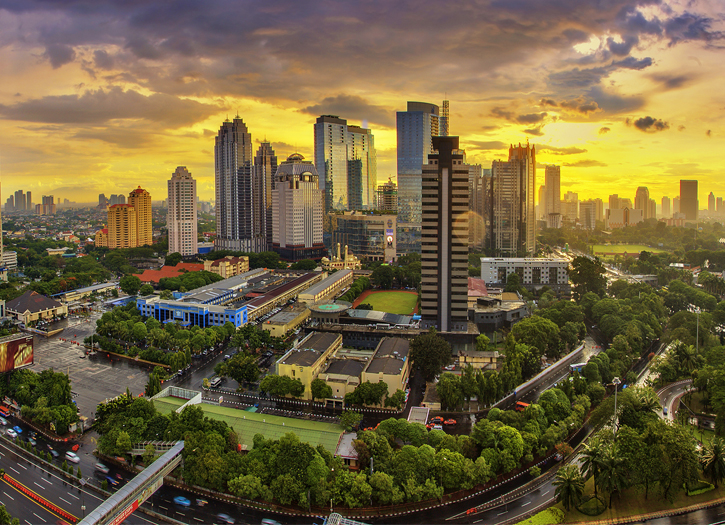The COVID-19 pandemic in Indonesia is part of the ongoing worldwide pandemic of coronavirus disease 2019 (COVID-19) caused by severe acute respiratory syndrome coronavirus 2 (SARS-CoV-2). By 9 April, the pandemic had spread to all 34 provinces in the country and by 23 July, half of them had more than 1,000 cases. Jakarta, East Java, and Central Java are the worst-hit provinces. The largest increase of new cases in a single day occurred on 29 August, when 3,308 cases were announced. At most 3,560 recoveries and 139 fatalities were ever recorded within a span of 24 hours.
Indonesia has tested 1,333,985 people against its 269 million population so far, or around 4,948 people per million. The World Health Organization has urged the nation to perform more tests, especially on suspected patients. Jakarta became the first province that confirmed COVID-19 cases, while Gorontalo was the last to do so. On 6 July, Jambi became the last province to report a death, 53 days after the penultimate province East Nusa Tenggara did. Jakarta set a record for most cases in a single day by a province with 1,094 cases, beating the previous record held by West Java with 962 cases. Java is currently the epicenter of the pandemic since it has more cases than all other regions combined.
An additional 50 to 70 people were put under surveillance after coming into contact with the first two confirmed COVID-19 patients. This number includes those who had visited Mitra Keluarga Hospital in Depok, the hospital the two confirmed patients were previously admitted to before being transferred to North Jakarta. Indonesia banned all flights from and to mainland China starting from 5 February. The government also stopped giving free visa and visa on arrival for Chinese nationals. Those who live or have stayed in mainland China in the previous 14 days have been barred from entering or transiting through Indonesia.
The Ministry of Health ordered the installation of thermal scanners for at least 135 airport gates and port docks, and announced that provisioning over 100 hospitals with isolation rooms (to WHO-recommended standards) would begin. Starting on 4 March, Jakarta MRT also began scanning the temperature of passengers entering the stations and denying access to those with symptoms of high fever. On 13 March, the government designated 132 treatment facilities across Indonesia. On 18 March, 227 additional hospitals (109 military hospitals, 53 police Hospitals and 65 state-owned enterprises hospitals) are provisioned to cover more patients across the country.
As schools were closing in some regions, Minister of Education Nadiem Makarim announced readiness of the Ministry of Education to assist schools in online learning by providing free teaching platforms. Minister of Finance Sri Mulyani also announced a shifting of infrastructure budget of 1 trillion IDR into healthcare and pandemic prevention. Ministry of Foreign Affairs also expanded the travel restrictions to temporary abolish visa free entry to Indonesia for one month and deny transit or arrival for visitors who have been in Iran, Italy, Vatican City, Spain, France, Germany, Switzerland, and United Kingdom within the past 14 days.
In late April, President Widodo asked the United States for medical equipments, including ventilators via phone call to President Donald Trump. To which President Trump, on April 24, responded he will provide and also reiterated the intent to strengthen economic cooperation between the two. To reduce the impact of COVID-19 pandemic to the national economy, the government releases an IDR 10.3 trillion stimulus policy to the tourism sector, in the form of ticket price discounts and restaurant tax deductions.
Under the current restrictions, all public transportation options must operate with reduced hours and capacity. Non-essential businesses and stores are required to be closed. Restaurants and food stalls are open for takeaway and delivery only; markets and essential business can may open with social distancing. Depending on the area, private transportation requires a limitation of passengers and a mask obligation will also be in effect. On 16 March, at least 17 universities across Indonesia confirmed that conventional face-to-face lectures would be cancelled and would be replaced by online classes.As of 14 March, numerous universities have closed their classes.







Add Comment
You must be logged in to post a comment.